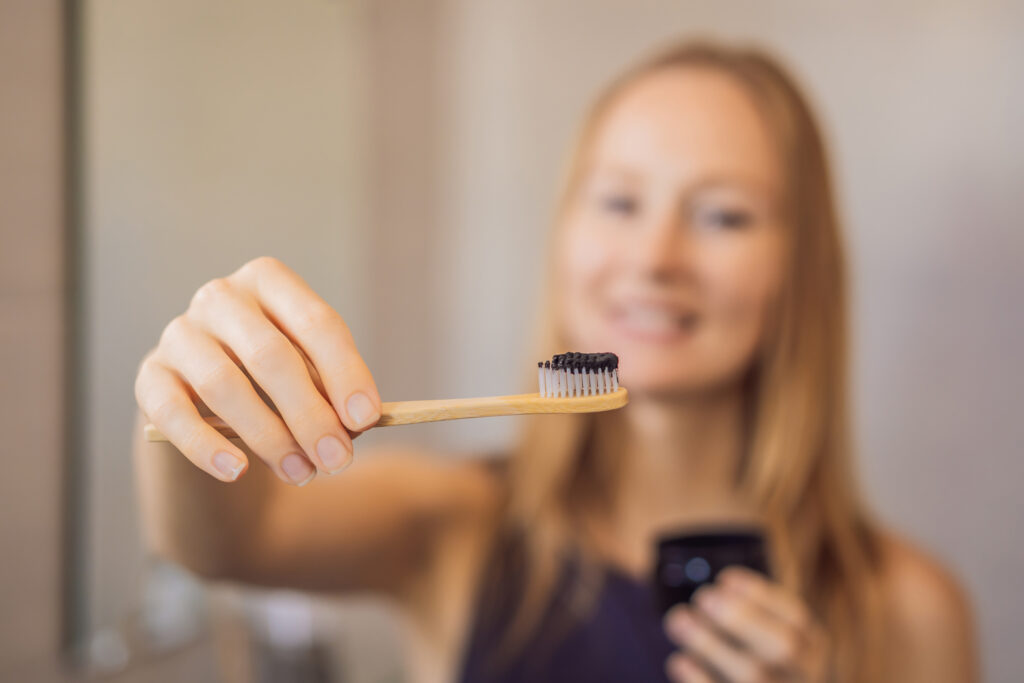Maintaining proper oral hygiene is a cornerstone of good health. We all strive for that bright, healthy smile, but there are some myths about cleaning your teeth that can lead you astray. In this article, the team at iSmile Orthodontics in Bundoora will debunk five common misconceptions and provide valuable insights to help you achieve optimal oral health, whether you have orthodontics like metal braces or invisible braces, or not.
Myth #1: You should rinse your mouth after brushing
If you’re like most people, you probably finish your teeth-brushing routine by rinsing your mouth with water. After all, it seems like a logical way to wash away toothpaste residue, right? Wrong. Rinsing your mouth immediately after brushing is not considered the best thing to do in the world of dental care.
The key ingredient in toothpaste is fluoride, which plays a crucial role in preventing tooth decay. Fluoride works by remineralising and strengthening your tooth enamel. When you rinse your mouth right after brushing, you wash away the fluoride before it has a chance to do its job. Instead, what you should do is spit out the excess toothpaste, but refrain from rinsing. This allows the residual fluoride to linger on your teeth, providing continued protection against harmful bacteria and plaque.
Myth #2: Use mouthwash after brushing your teeth
Mouthwash can be a valuable addition to your oral hygiene routine, as some formulations contain fluoride to further protect your teeth.
However, it’s crucial to time your use of mouthwash correctly. If you’ve just brushed your teeth with fluoride toothpaste, your teeth are already protected, and using mouthwash immediately afterwards isn’t necessary. Instead, consider using mouthwash at a different time of day when your teeth aren’t freshly brushed, such as after your midday meal or snack.
Myth #3: Hard bristle toothbrushes can remove more plaque
It’s a common misconception that hard bristle toothbrushes can remove plaque more effectively than soft ones. However, at iSmile Orthodontics in Bundoora, we know this is far from the truth!
The primary job of your toothbrush is to prevent plaque build-up in the first place, and a soft bristle brush is perfectly suited for this task.
Using a hard bristle brush can actually be very bad for your oral health. It can damage the enamel that coats your teeth, and once enamel is damaged, it cannot repair itself. Furthermore, hard bristle brushes can harm your gums, leading to bleeding and recession, which exposes the sensitive roots of your teeth and makes you more susceptible to gum disease. Brushing too hard when you have metal or invisible braces is also a bad idea, as it can damage the wires, glue, and brackets.
To safeguard your teeth and gums, opt for a soft bristle brush and only use gentle pressure while brushing.
Myth #4: Only electric toothbrushes are effective
Electric toothbrushes have gained popularity in recent years for their convenience and efficiency. They offer benefits such as built-in timers and can be particularly useful for people with limited mobility or those with metal braces. However, manual toothbrushes are still effective when used correctly.
If you’re diligent about brushing all surfaces of your teeth, a manual toothbrush can do the job just as well. The key is consistency and technique. Whether you prefer manual or electric, what matters most is that you brush your teeth regularly and effectively.
Myth #5: Flossing is only required occasionally
Flossing is often overlooked or neglected, but it plays a vital role in maintaining optimal oral hygiene. Your toothbrush can’t reach between your teeth, so flossing is the only effective way to remove food debris and plaque from these hard-to-reach areas. Make it a habit to floss every time you brush your teeth, especially if you have metal braces or invisible braces.
To floss effectively, use a 30 cm length of dental floss, wind the ends around your middle fingers, and gently guide the floss between your teeth. Slide it up and down the sides of each tooth and into the gum line. Remember to use a fresh section of floss for each tooth to prevent the spread of bacteria.
In conclusion, debunking these common myths about cleaning your teeth can help you maintain better oral health. By following the proper techniques and understanding the importance of fluoride, mouthwash, toothbrush bristle hardness, and regular flossing, you can achieve a healthier, brighter smile. If you have any questions or concerns about your oral hygiene, metal braces, invisible braces, or other orthodontics, don’t hesitate to reach out to iSmile Orthodontics in Bundoora to chat with one of our specialists. Your smile deserves the best care possible!






